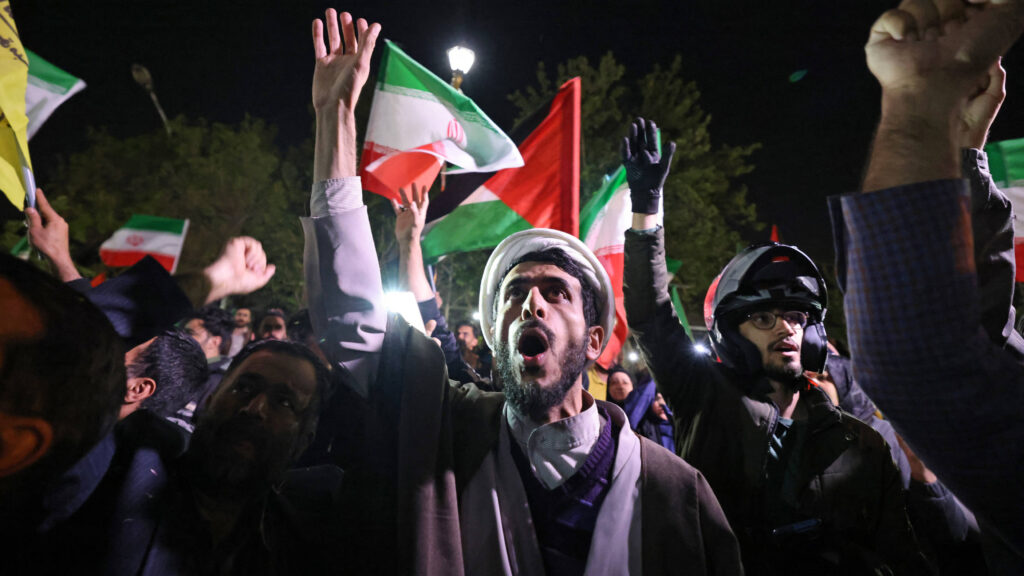The Israel-Iran conflict has intensified into its fourth consecutive day, with the Israeli military issuing an unprecedented evacuation warning to residents in parts of Tehran, the Iranian capital, ahead of new airstrikes.
The warning comes after a weekend marked by tit-for-tat military exchanges, including Israeli strikes on Iranian military and nuclear infrastructure and Iranian missile attacks that killed at least five people in Israel. The developments have stoked fears of a wider regional war, as diplomatic channels remain largely silent.
Israeli Air Superiority and Targeted Strikes
The Israeli military claims it has now achieved air superiority over Tehran, asserting that Israeli fighter jets can operate over Iranian airspace with minimal resistance. Early Monday, Israel expanded its operations, striking key facilities and even targeting Iranian state television studios.
During a live broadcast, chaos unfolded on-air as the TV studio filled with dust and debris. The presenter was seen fleeing the set amid the sound of explosions and cries of “Allahu Akbar” from off-screen. The broadcast abruptly cut to pre-recorded programming, underscoring the direct impact of Israeli strikes on Iranian media operations.
Iran’s Missile Response and Nuclear Provocation
Iran retaliated with a new wave of missile attacks targeting Israeli cities, killing five and injuring several others. The latest escalation followed Tehran’s controversial announcement last week that it had constructed a third nuclear enrichment facility a move that comes on the heels of a formal censure by the International Atomic Energy Agency (IAEA).
The IAEA resolution criticized Iran’s failure to adhere to nonproliferation agreements, fueling Israeli fears of an imminent nuclear threat. Israel responded on Friday by launching the first round of “Operation Rising Lion”, striking military bases, nuclear complexes, and top-level command centers across Iran.
Growing Fears of Regional War
With the Israeli military intensifying operations inside Iranian territory, regional tension is at its highest point in years. Defense analysts warn that the conflict risks spilling over into neighboring countries, particularly with Lebanese Hezbollah, Iraqi militias, and Yemen’s Houthis expressing solidarity with Iran.
The United States has condemned Iran’s nuclear escalation but has stopped short of endorsing Israeli airstrikes. However, U.S. forces in the region remain on high alert, and diplomatic efforts are reportedly underway behind closed doors to de-escalate the standoff.
Middle East’s Nuclear Shadow
Israel, widely believed to possess undeclared nuclear weapons, remains the only country in the Middle East with an active atomic arsenal. Its longstanding doctrine of nuclear ambiguity has fueled regional suspicions and arms races. The current round of hostilities, centered on Tehran’s nuclear intentions, brings that shadowy arms race into a perilous new chapter.
What’s Next?
With no signs of immediate ceasefire negotiations, and Israel’s warning to Tehran civilians signaling deeper strikes, global attention now turns to whether the conflict will escalate into a full-scale war or be curbed by international diplomacy.
The United Nations Security Council is expected to convene in an emergency session by Tuesday, but so far, no consensus has been reached.



